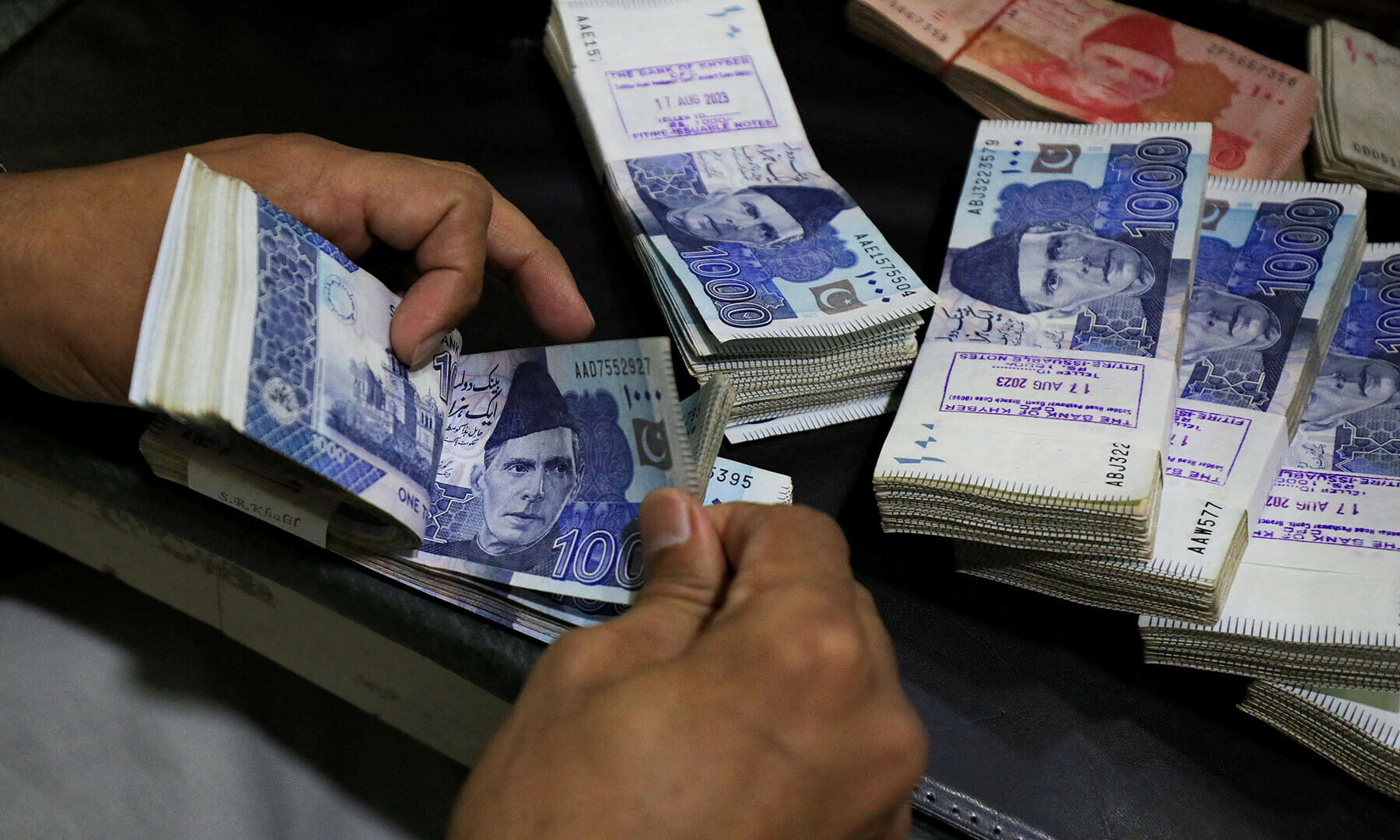NEWS

IN BRIEF

Written by: Muhammad Abubakar
Pakistan faces a daunting fiscal landscape where reforming the taxation system is central to fostering economic stability. The country's tax-to-GDP ratio of 9% in 2024 remains among the lowest globally, starkly contrasting with regional peers like India (16.7%) and developed nations such as Sweden, which consistently exceed 20%. This disparity reflects systemic inefficiencies, including a narrow tax base, rampant evasion, and over-reliance on indirect taxes, disproportionately burdening lower-income groups.
Pakistan's fiscal challenges demand bold, transformative action. Incremental measures will no longer suffice. The nation can unlock sustainable growth by prioritizing tax reform, fostering economic transparency, and investing in high-potential sectors. However, this requires unwavering political will and robust public support. The question remains: will Pakistan rise to the occasion?
SHARE
Pakistan faces a daunting fiscal landscape where reforming the taxation system is central to fostering economic stability. The country’s tax-to-GDP ratio of 9% in 2024 remains among the lowest globally, starkly contrasting with regional peers like India (16.7%) and developed nations such as Sweden, which consistently exceed 20%. This disparity reflects systemic inefficiencies, including a narrow tax base, rampant evasion, and over-reliance on indirect taxes, disproportionately burdening lower-income groups.
These structural weaknesses in Pakistan’s tax system have contributed to fiscal instability, a persistent reliance on external funding, and impeded development. The 4th Pakistan Prosperity Forum 2024, held by the PRIME Institute in collaboration with the Friedrich Naumann Foundation and the Constructors Association of Pakistan, brought together leading economists, policymakers, and industry leaders to dissect these challenges. The forum offered a reflection on the flaws in Pakistan’s tax regime and inspiring global examples, including Georgia’s transformation, that could guide reforms.
A standout session at the event was led by Mr. Aleksi Aleksishvili, the former Finance Minister of Georgia, who chronicled Georgia’s journey from economic turmoil to fiscal resilience. Post-Soviet Georgia faced staggering challenges: corruption, a tax-to-GDP ratio of less than 10%, and rampant evasion. By streamlining tax structures and reducing discretionary exemptions, Georgia increased compliance, curbed corruption, and attracted foreign investment, positioning itself as a beacon for economic reform. The proposed draft aimed to halve the tax burden, eliminate privileges, ensure clarity, and align with constitutional rights. The reforms increased tax revenue from 12% of GDP to 25% within a decade, alongside higher foreign direct investment. However, as Mr. Aleksishvili noted, the flat tax system, while effective in boosting compliance and simplicity, can have drawbacks—such as disproportionately benefiting higher earners without careful policy calibration.
For Pakistan, the lesson is clear: transformative reforms are possible, but they require political will, robust implementation mechanisms, and attention to socio-economic disparities.
Dissecting Pakistan’s Tax System: Structural Gaps
According to the World Bank’s Development Indicators Report 2024, Pakistan’s tax revenues have stagnated due to structural flaws. Despite recent attempts to formalize untaxed sectors, such as imposing levies on freelancers and digital platforms, more efforts are needed. The informal economy, which accounts for 35-40% of GDP, remains untaxed, exacerbating fiscal pressures. Moreover, indirect taxation constitutes over 60% of revenue, disproportionately impacting vulnerable populations while leaving high-income earners relatively untouched. The budgetary imbalance is stark. Debt servicing consumes 45% of federal revenue, leaving little for development spending. Compounded by inflation exceeding 30%, the government struggles to allocate resources for education, healthcare, and infrastructure. Pakistan risks perpetuating this vicious debt dependency and stagnation cycle without significant reform.
Experts at the forum emphasized that simply raising taxes is insufficient; the focus must shift to broadening the tax base, simplifying the system, and fostering a culture of compliance. Discussions also centered on the PIDE-PRIME Tax Reform Plan, presented by Dr. Mahmood Khalid, which offers a blueprint to address these inefficiencies.
Key proposals included:
- Broadening the Tax Base: Pakistan must address its narrow taxpayer pool. Out of a population of 240 million, only 3.6 million file income tax returns. Expanding the tax net to include sectors like agriculture, real estate, and informal businesses can increase revenues substantially.
- Reducing Reliance on Indirect Taxes: It is crucial to shift the focus from regressive sales taxes, which take a larger percentage of income from low-income earners than from high-income earners to progressive income and corporate taxes.
- Sectoral Incentives for Growth: The construction sector, contributing 12% to GDP, and IT exports, worth $3.5 billion annually, have untapped potential. Tax credits for property developers and reduced tariffs for IT exports could stimulate job creation and innovation.
- Transparent Governance: Corruption and inefficiency erode public trust and discourage tax compliance. Strengthening institutional capacity, introducing digital tax systems, and enhancing accountability are essential steps.
These reforms aim to achieve a tax-to-GDP ratio of 13% by 2027, a target that hinges on transparent implementation and robust monitoring.
The Flat Tax Debate
The proposal of a flat tax regime sparked considerable debate among economists at the forum. Advocates highlighted its simplicity and ability to curb evasion, as evidenced in Georgia. However, critics pointed out that without safeguards, a flat tax could exacerbate income inequality. Pakistan’s diverse socio-economic landscape necessitates careful analysis to ensure equitable and practical reforms.
Policymakers must also consider the political and social implications of such reforms. As Dr. Nadeem-ul-Haque, former Vice Chancellor of PIDE, remarked during the event, “Tax reforms are not just technical adjustments; they are fundamentally about building trust between the state and its citizens.”
Broader Recommendations: A Holistic Approach
The discussions at the forum culminated in a set of broader recommendations that link taxation to economic growth:
- Formalizing the Informal Economy: It is critical to bring untaxed sectors into the fold, such as freelancers and SMEs. Recent measures, like taxing digital platforms, mark a step in the right direction, but implementation remains key.
- Reducing Reliance on Indirect Taxes: Shifting the burden to progressive taxation—targeting wealthier individuals and corporations—can reduce inequality.
- Enhancing Transparency and Governance: Digitalizing tax systems, reducing bureaucratic red tape, and instituting accountability mechanisms are essential for fostering compliance.
- Targeted Incentives for Growth Sectors: Offering tax credits for construction projects and export incentives for IT services can spur innovation and job creation.
- Debt Dependency and Fiscal Sovereignty: External debt servicing consumes nearly 45% of federal revenue, so reducing reliance on IMF programs is a priority. This can be achieved by boosting domestic revenue collection and rationalizing expenditures.
The Role of Global Collaboration
Drawing parallels between Georgia’s success and Pakistan’s challenges underscores the value of learning from global best practices. However, these must be tailored to Pakistan’s unique context. The event’s speakers emphasized that tax reforms must balance growth and equity. While luxury taxes on high-end properties and vehicles have increased revenue, reliance on indirect taxes exacerbates inequality. Shifting the burden toward wealthier individuals and corporations and targeted subsidies for vulnerable groups can ensure inclusive growth.
A Call to Action
Pakistan’s fiscal challenges demand bold, transformative action. Incremental measures will no longer suffice. The nation can unlock sustainable growth by prioritizing tax reform, fostering economic transparency, and investing in high-potential sectors. However, this requires unwavering political will and robust public support. The lessons from Georgia underscore the need for comprehensive reforms tailored to Pakistan’s unique socio-economic fabric.
As the country grapples with these complex challenges, the path to prosperity lies in visionary leadership, fiscal responsibility, and a commitment to equitable development. The question remains: will Pakistan rise to the occasion?
About the Author: Muhammad Abubakar is the Program and Communications Officer at the Accountability Lab Pakistan, and can be reached at mabubakar@accountabilitylab.org
